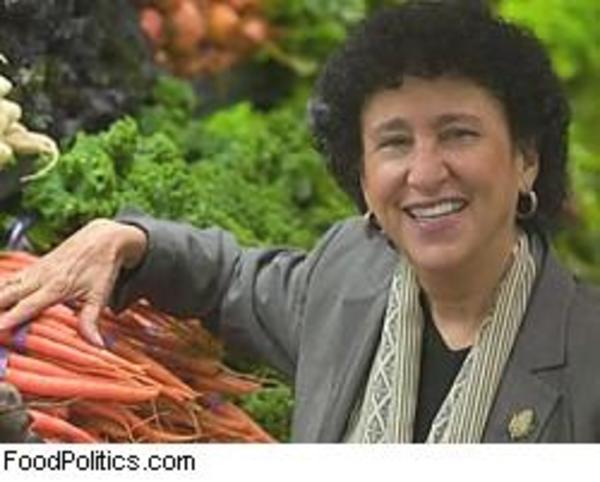Q & A with Foodie Marion Nestle…

I have to admit. I never heard of Marion Nestle before. Turns out, she’s a foodie and a professor of nutrition, food studies and public health at New York University, as well as an author of many books, such as Food Politics: How the Food Industry Influences Nutrition and Health.

Marion also writes a column for The San Francisco Chronicle and in her latest article, she answers some questions about organic food. Here are a couple good ones:
Q: What is the difference between “100% organic” and “organic”?
A: Organic has a precise meaning under the USDA’s organic program. Certified 100% Organic means that all the ingredients in a product have been grown or raised according to the USDA’s organic standards, which are the rules for producing foods labeled organic. Certified Organic requires that 95 to 99 percent of the ingredients follow the rules.
What, exactly, are those rules? Summarizing what’s in hundreds of pages in the Federal Register: plants cannot be grown with synthetic pesticides, herbicides, fertilizers, genetic modification, irradiation or sewage sludge.
Q: Which is worse: eating nonorganic produce full of pesticides or not eating produce at all?
A: Research demonstrates substantial health benefits from eating fruits and vegetables. Although I wish we had more definitive research, these benefits appear to greatly outweigh any risks of pesticides.
If you want to compromise, you can save your organic dollars for the foods most likely to be high in pesticides. These, according to the Environmental Working Group (ewg.org), are peaches, nectarines, apples, bell peppers, strawberries, cherries, pears, raspberries, imported grapes, celery, potatoes and spinach.
In contrast, foods that you peel – onions, peas, bananas, sweet corn and tropical fruits, for example – tend to be low in pesticides.

